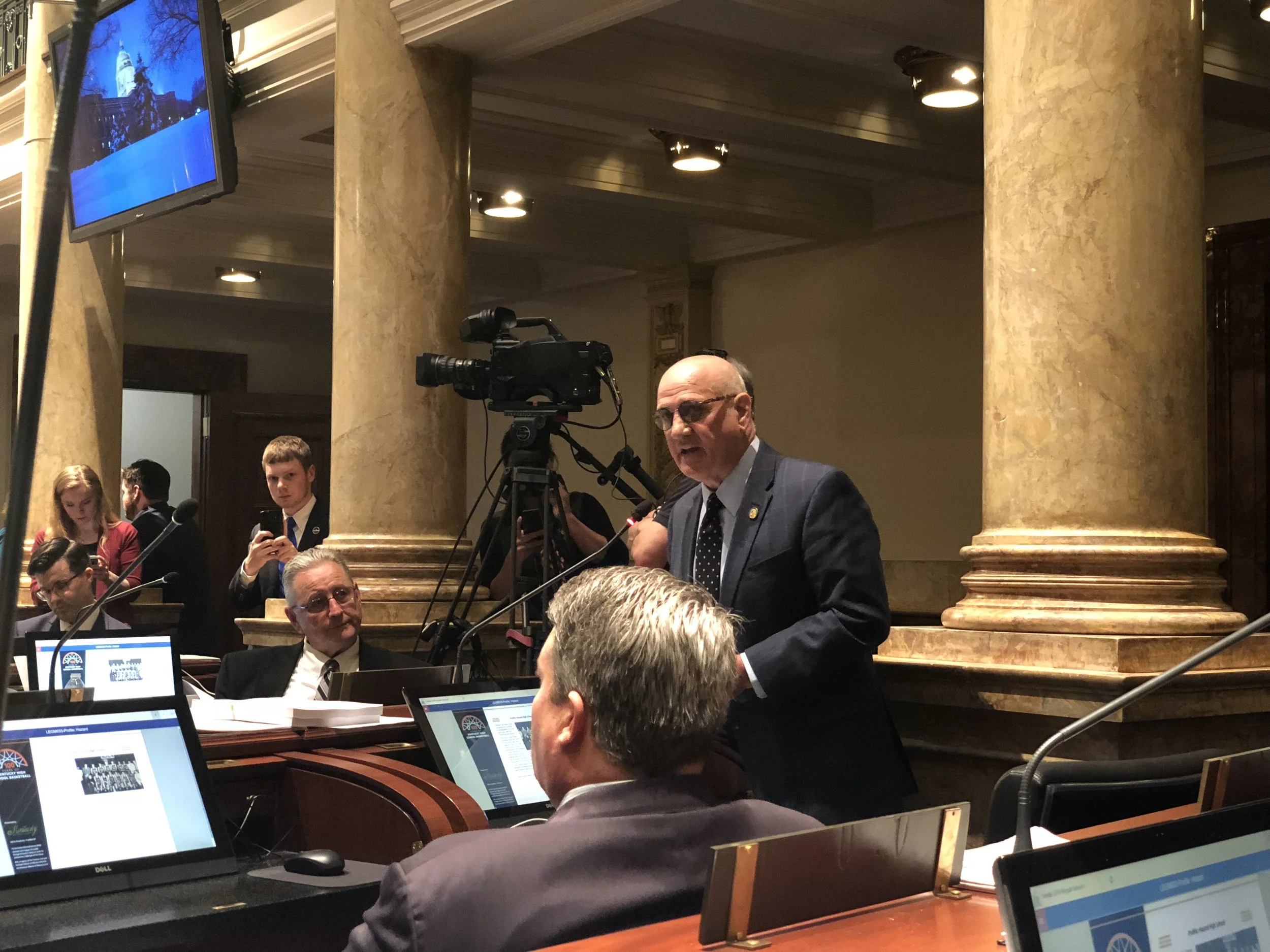Over the course of the 2017 interim period a bipartisan working group of House members met several times to hear from stakeholder groups about issues related to Kentucky’s adoption and foster care processes. I was fortunate to “audit” some of those meetings as an interested member of the Senate. When the 2018 session began the working group’s end product became House Bill 1, which ultimately passed one vote short of unanimously.
HB1 contained a number of critical changes to the child welfare process for foster care and adoption, including imposing new timelines and restrictions to prevent cases from lingering overlong on court dockets and getting stranded in the inboxes of the state’s bureaucracy. The bill also creates a new Child Welfare Oversight and Advisory Committee and I am honored to be named as a member by the Senate President:
Commonwealth of Kentucky
Office of Senator Whitney Westerfield
For Immediate ReleaseJune 8, 2018
Contact: John Cox
Senate President Stivers appoints Senate Judiciary Chairman Whitney Westerfield to the Child Welfare Oversight and Advisory Committee
FRANKFORT, Ky. (June 8, 2018) – Kentucky Senate President Robert Stivers announced Thursday the appointment of Senator Whitney Westerfield (R-Hopkinsville) to the Child Welfare Oversight and Advisory Committee. The newly-formed committee was created in statute with the recent passage of House Bill 1 from the 2018 Legislative Session.
House Bill (HB) 1 gives more rights to foster parents by cutting red tape and reducing regulatory burdens associated with adopting a child in Kentucky. The Child Welfare Oversight and Advisory Committee was created by HB 1 to review, analyze, and provide oversight on child welfare, including but not limited to foster care, adoption, and child abuse, neglect, and dependency.
“As an adoptive parent, I understand the challenges and anxieties associated with Kentucky’s adoption process,” Senator Westerfield said. “I look forward to applying my experience in the courtroom and as the Senate Judiciary Committee chairman to the child welfare process where too often children fall through the cracks. I was proud to carry House Bill 1 in the Senate, I am proud to serve on this committee, and I am anxious to get to work to further improve our adoption and foster care programs in the Commonwealth.”
A meeting schedule for the Child Welfare Oversight and Advisory Committee is expected to be announced in the near future. For more information on the committee, please visit http://www.lrc.ky.gov/committee/statutory/SWOAC/home.htm. For the full text of HB 1, please visit http://www.lrc.ky.gov/record/18RS/HB1.htm.
###






